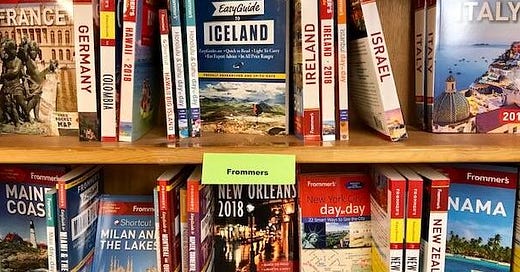Safe Travels, Arthur Frommer
I am very thankful for those Frommer’s recommendations during what proved to be a formative period of my own life.
Arthur Frommer, the founder of the Frommer’s travel guides, website, and other media that highlighted affordable travel long before it became IG trendy, has died.
In the long, long before time prior to smart phones keeping the entire length and breadth of human knowledge in the palm of travelers’ hands, information on faraway lands was harder and slower to come by.
Right before the invention of the iPhone and the revolution of social media changed travel planning forever, I was trying to find my way around Europe in the early years of the 00s. Stationed in Frankfurt, Germany meant not only being overseas but being homebased at one of the great transportation hubs in all of Europe, putting most of the Old World within a day’s travel. What was hard to know was where to go, how to get there, and then — usually on a tight budget — what to do, eat, and where to sleep once you got there.
Fortunately, half a century before, another serviceman had a plan to address those issues. By the time I got to Europe, Frommer’s was a pioneering website, but while serving in the US Army Arthur Frommer started writing guides for GIs who wanted to see more of the area than just their assigned posts. Soon he was publishing what would become known as “Frommer’s Guide to…” fill-in-the-blank place, price, or experience. For decades, Frommer’s not only told folks the where and how, but Arthur Frommer became a preacher of the “why” of travel:
If I had never traveled, I would never have witnessed all the many startling ways— some that work, some that don’t—in which other cultures respond to their social, urban, and personal problems. I would never have fully understood all the enormous variety of solutions.
I would never have spoken with a European conservative defending the laws that prevent an employer from firing a long-time employee for insubstantial reasons. I would have gone through life assuming such a right to be God-ordained. I would never have met an Indonesian lawyer who ridiculed the idea of submitting lawsuits to a jury of one’s peers. I would regard the jury principle as sacrosanct.
In other words, I would have remained limited in my mind’s ability to consider other solutions.
If I had never traveled, I would never have understood that all people, no matter how exotic their appearance, have basically the same concerns, the same desires. I would never have spoken with an African woman in a dung hut about theories of child upbringing. I would never have heard the reactions of an Egyptian laborer to recent films.
If I had never traveled, I would never have felt physically sick when I read about the oppression or misfortune of peoples I had met in the course of my journeys. I would never have remembered them as fellow human beings instead of abstract news items. In short, I would have remained—despite all the reading I could do, all the lectures I could hear—a person who fundamentally was without humility, subconsciously believing in the constant superiority of his own nation or tribe.
Travel, in short, is a life-changing experience, a positive and joyous activity.
I am very thankful for those Frommer’s recommendations during what proved to be a formative period of my own life. I probably would have gotten around some without them, but it made it easier, and highlighted the many “non-touristy” places that are some of my most treasured memories and most interesting encounters of not just places but amazing people. What started out as Arthur Frommer helping out his fellow servicemen built a travel empire, one trip at a time.
I’m really glad Arthur Frommer went a ‘travelling. I’ll forever be grateful and appreciative that I got to go and do likewise. And Frommer’s sure did make it better, in the time before there was an app for that.





